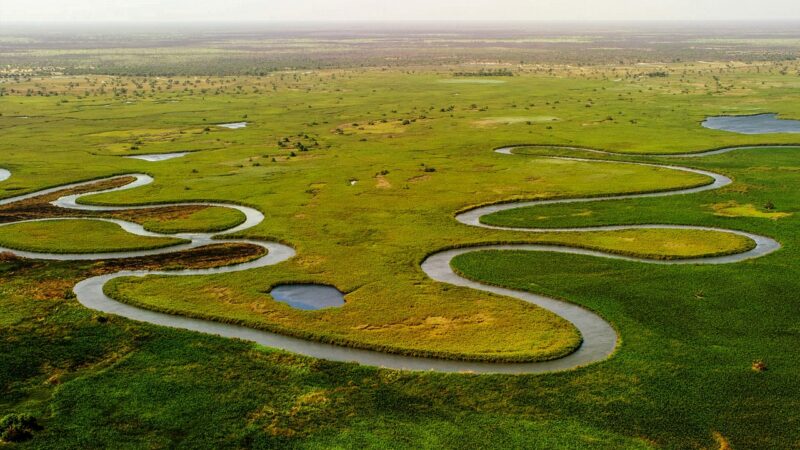Why Deltas Are Critical for Agriculture and Ecosystems
November 16, 2024

Deltas are unique landforms that occur where rivers meet the sea, falling under the influence of both riverine and marine systems. They are rich in biodiversity and fertile soil, making them vital for agriculture and essential to local ecosystems. In this article, we will explore why deltas are critical, focusing on their role in agriculture, their ecological significance, and the challenges they face due to climate change and human activities.
1. The Importance of Deltas in Agriculture
Deltas play a pivotal role in global agriculture, contributing to food security and supporting local economies. Here’s why they are crucial:
- Nutrient-Rich Soils: The sediment deposited by rivers replenishes the soil with essential nutrients, making delta areas ideal for farming. Crops such as rice, wheat, and maize thrive in these fertile lands, supporting millions of people worldwide.
- Water Resource Availability: Deltas often have abundant freshwater sources from rivers and aquifers, providing irrigation for agricultural activities. This water is critical, especially in regions prone to drought.
- Support for Fisheries: The ecosystems formed by deltas create nurseries for fish and other marine organisms, contributing to local fisheries that are essential to food supply as well as economic stability for coastal communities.
Deltas enable intensive agricultural practices and allow for high crop yields, which is vital as the global population continues to rise.
2. Ecological Significance of Deltas
Beyond agriculture, deltas serve essential ecological functions:
- Biodiversity Hotspots: Deltas are home to unique ecosystems that support a wide variety of flora and fauna. Wetlands, marshes, and estuaries offer habitats for countless species, including migratory birds, fish, and aquatic plants.
- Natural Water Filters: The vegetation and organic matter in deltas act as natural filters, removing pollutants and sediments from water before it flows to the open ocean. This filtration process helps maintain water quality and ecosystem health.
- Carbon Sequestration: The diverse plant life in delta ecosystems can capture and store carbon, helping mitigate climate change impacts. Mangrove forests, which are common in many deltas, are particularly effective at sequestering carbon dioxide from the atmosphere.
In summary, deltas’ diverse ecosystems not only boost agricultural production but also promote biodiversity and contribute to climate resilience.
3. The Impact of Climate Change on Deltas
Climate change poses significant threats to delta regions. As sea levels rise, many deltas face flooding, erosion, and saltwater intrusion. Here are some specific impacts:
- Increased Flooding Risks: More frequent and intense storms driven by climate change can lead to higher risks of flooding. This affects agricultural productivity and can destroy crops, threatening food security.
- Saltwater Intrusion: Rising sea levels increase the salinity of freshwater sources in deltas, making it challenging to grow freshwater crops. This shift can push farmers to switch to salt-tolerant varieties, which may have lower yields.
- Loss of Habitat: The ecosystems within deltas are also vulnerable to climate change. Species that rely on specific wetland habitats may be lost as conditions change, resulting in diminished biodiversity.
The ongoing impact of climate change necessitates immediate action to protect delta ecosystems and agriculture. Sustainability measures such as restoring wetlands and implementing better water management practices will be crucial.
4. Solutions for Sustainable Delta Management
To safeguard deltas’ critical role in agriculture and ecosystems, stakeholders must adopt sustainable management practices:
- Integrated Water Resource Management (IWRM): Coordinating the management of water resources across sectors can help balance agricultural needs, ecological health, and community livelihoods.
- Restoration Projects: Initiatives aimed at restoring wetlands, mangroves, and other habitats can help enhance delta resilience to climate change by rebuilding natural barriers against storm surges and flooding.
- Community Engagement: Involving local communities in delta management ensures that practices are culturally appropriate and effective. Local knowledge can be invaluable in implementing sustainable agriculture techniques and conservation strategies.
Sustainable practices not only benefit deltas but also enhance food production, promote biodiversity, and strengthen local economies.
Conclusion
Deltas are more than just geographical formations; they are crucial players in agriculture and ecosystems worldwide. The nutrient-rich soils, abundant water resources, and diverse habitats found in deltas contribute significantly to food security and ecological balance. However, the challenges brought on by climate change and human activities threaten their health and sustainability. Implementing integrated approaches that prioritize restoration, resource management, and community involvement is essential to preserve these vital ecosystems for future generations. By recognizing the importance of deltas, we take a step towards more resilient agricultural systems and healthy ecosystems.







